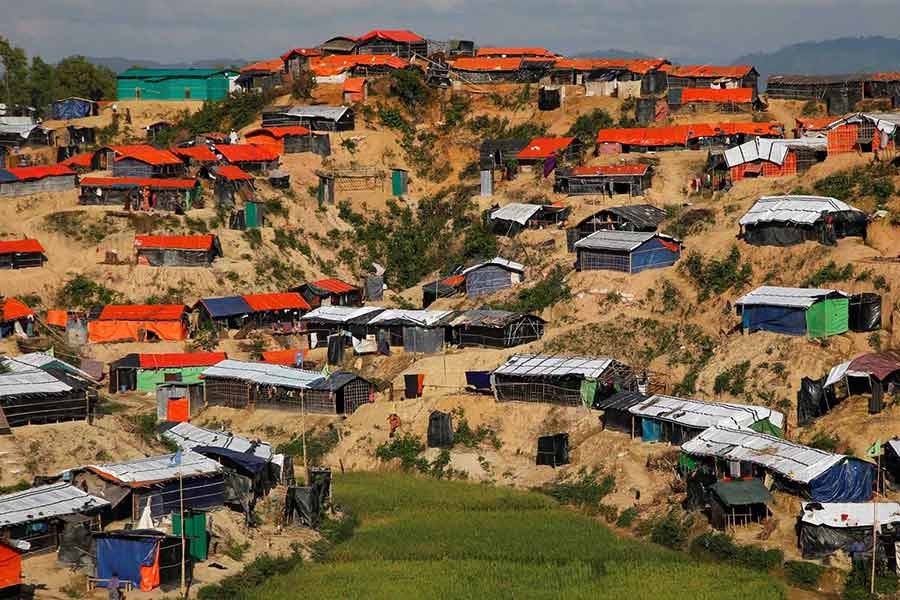
Published :
Updated :

Bangladeshi police have started using drones to monitor Rohingya camps in Cox’s Bazar after a spike in criminal activity, according to a report published by Arab News.
Bangladesh hosts over 1.1 million Rohingya who fled neighbouring Myanmar during a military crackdown in 2017. Most of them live in dozens of cramped settlements in Cox’s Bazar, a coastal region in the country’s east.
According to data from Cox’s Bazar police, at least 104 murders were recorded in Rohingya camps in the past four years, and more than 1,000 cases had been filed against their inhabitants on charges of abduction, extortion, drug dealing, human trafficking and sexual assault.
“Incidents in which Rohingya are abducted for ransom are on the rise,” Naimul Haque, superintendent of the Armed Police Battalion that oversees the camp area, said.
“Some of the areas in the camp are inaccessible to law enforcers. We can’t go there by vehicle because of the hilly areas. So, we introduced drones last Thursday to monitor the movement of suspects,” he said.
Since late last week, he added, two police operations have already taken place following footage retrieved from drones, including the arrest of the brother of the leader of the Arakan Rohingya Salvation Army, a Rohingya insurgent group active in Myanmar’s northern Rakhine State.
FAST FACT
Law enforcers have limited access to many areas in Cox’s Bazar camps due to congestion and hilly terrain.
Security analyst retired Air Commodore Ishfaq Ilahi Choudhury said the deployment of drones would help law enforcers expand the scale of surveillance.
“Now law enforcers will have better access to the hard-to-reach areas. Improved surveillance will definitely reduce the crime rate in the camp areas,” he said.
“Border Security Force in India is already using drones at many parts of the border as a surveillance tool. Our Border Guard Bangladesh can also use drones to curb drug traffickers, arms dealers and human traffickers in the border areas.”


 For all latest news, follow The Financial Express Google News channel.
For all latest news, follow The Financial Express Google News channel.